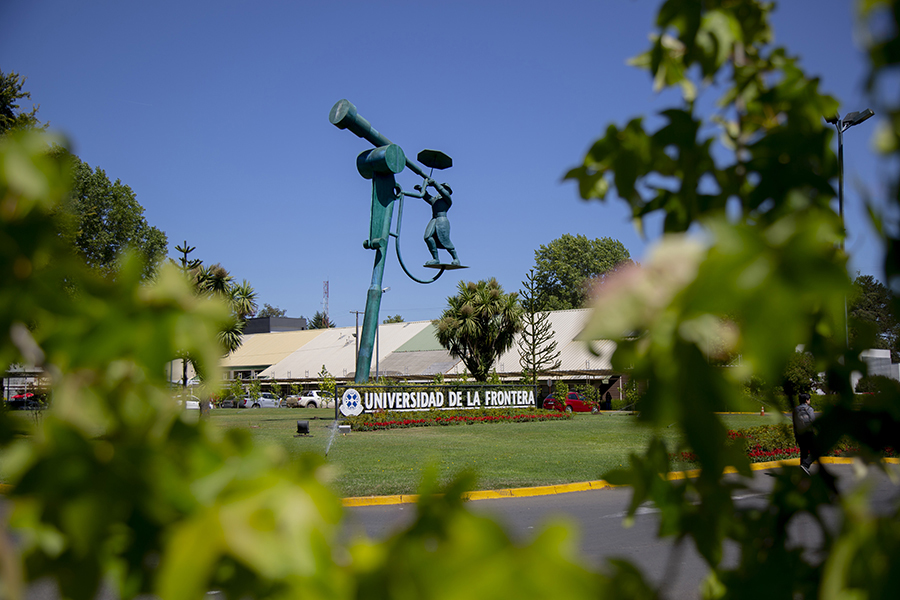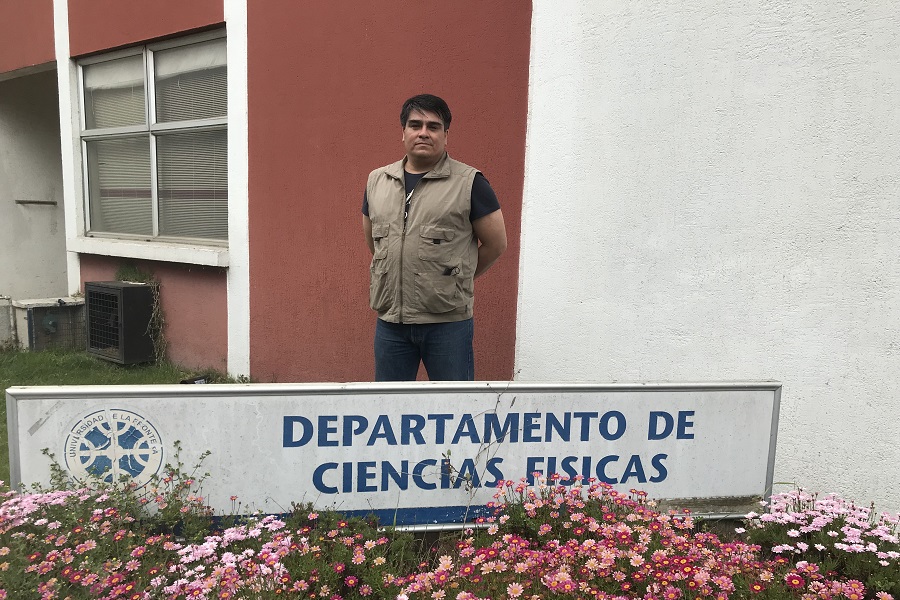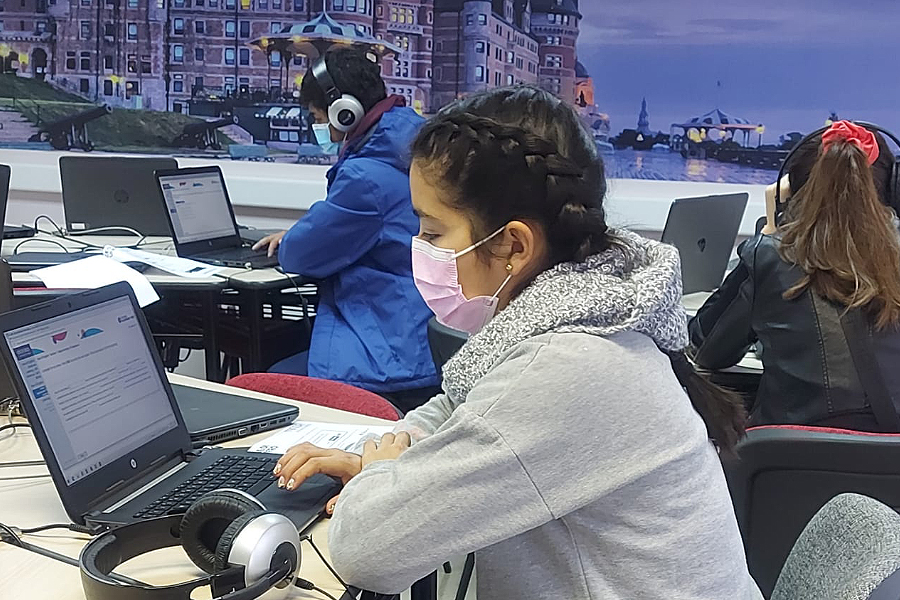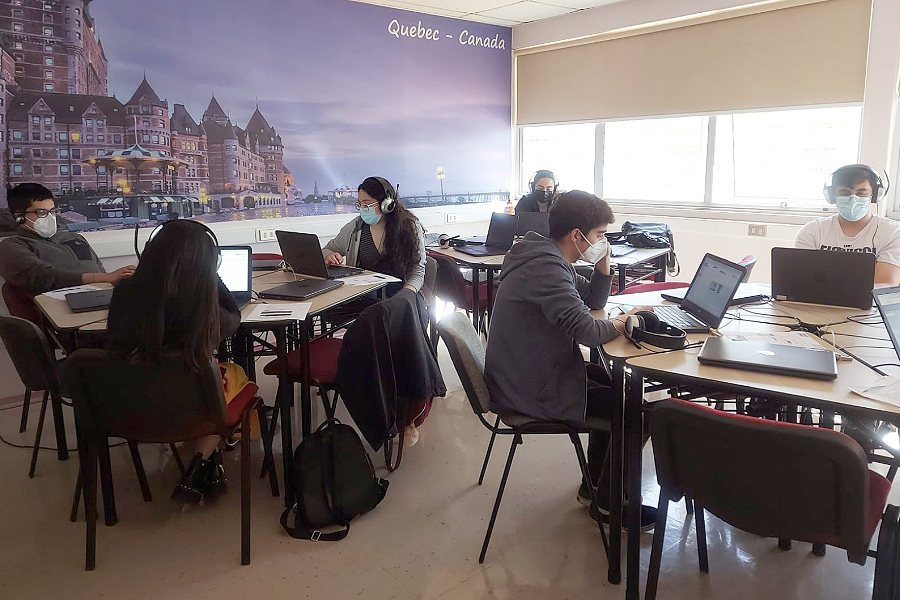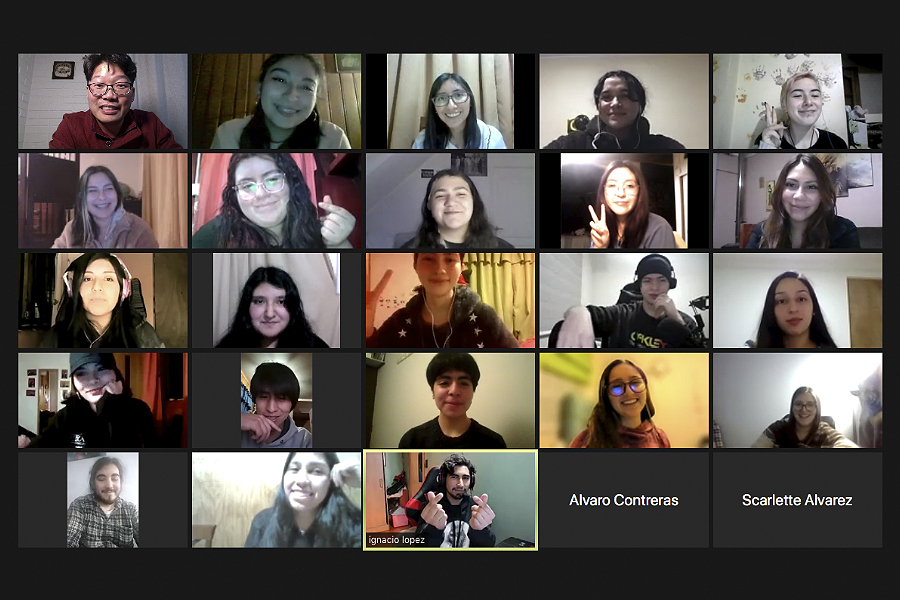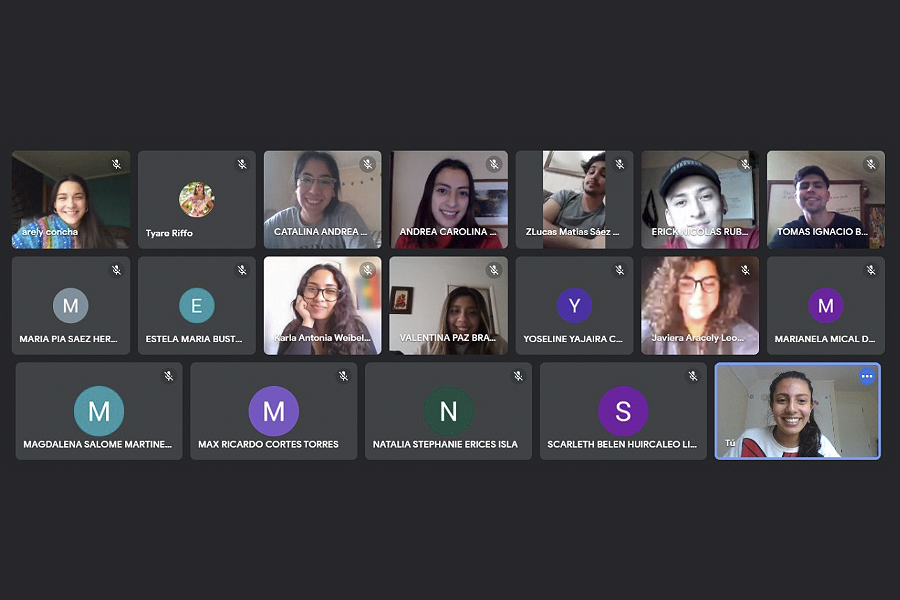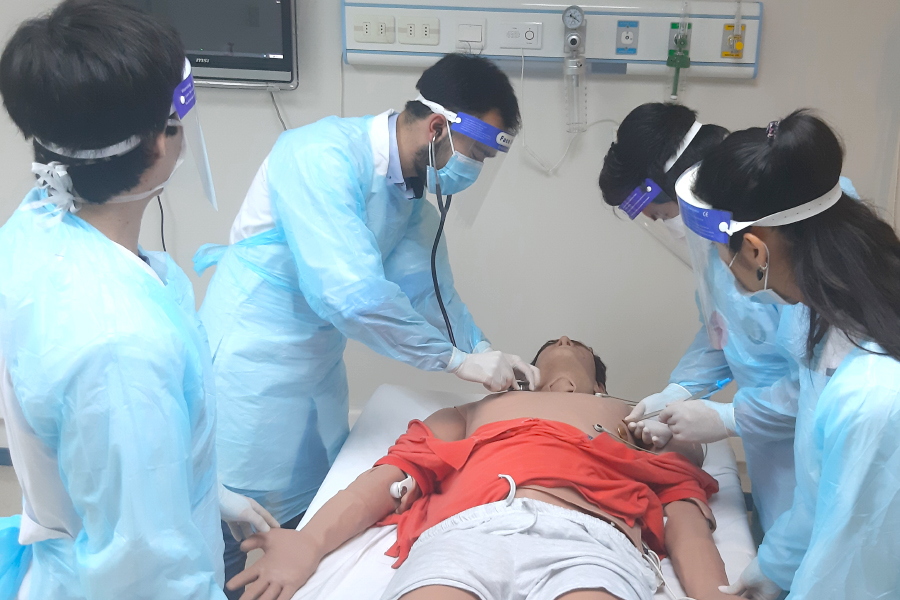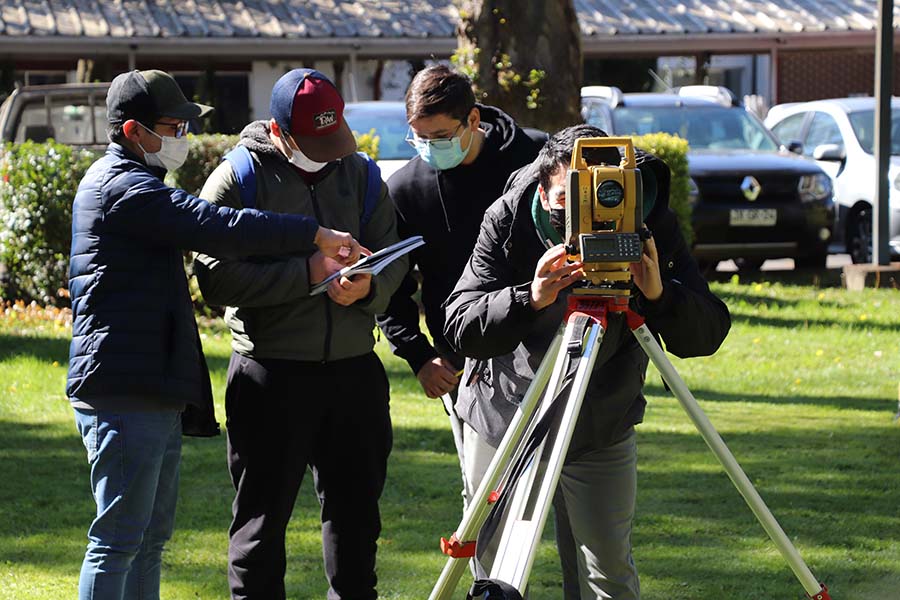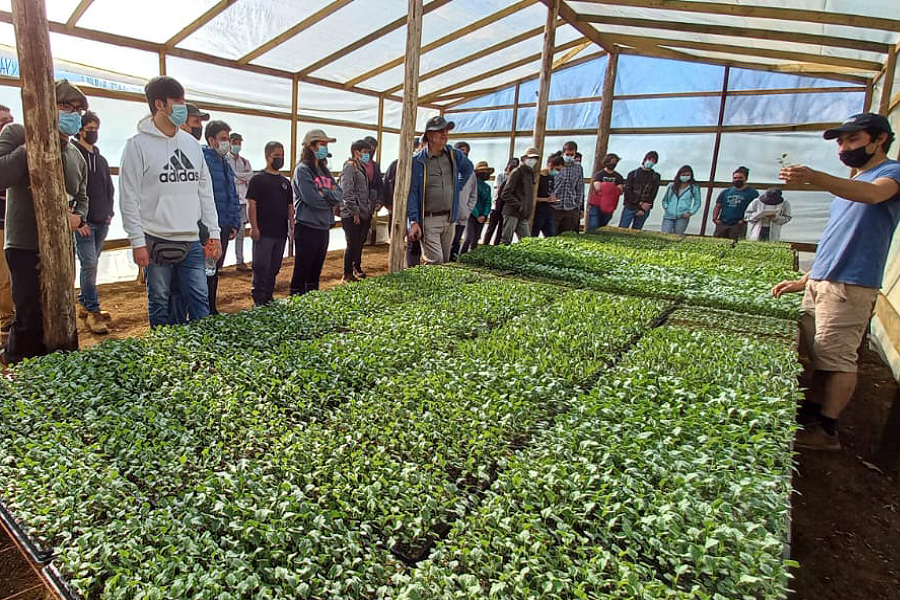|
UFRO climbs to the sixth position in the overall ranking and is among the top 10 in Chile regarding its programs in Psychology, Nursing, Nutrition and Dietetics, Dentistry, Agronomy, Journalism and Sociology. |
The Universidad de La Frontera (UFRO) climbed three positions in the América Economía Ranking 2021 compared to last year, being in sixth place among the universities in Chile and in third place regarding the state universities in Chile. The ranking assesses Chilean universities that voluntarily provide detailed information about the quality indicators in different dimensions, such as Teaching Quality, Research, Accreditation, Infrastructure and Financial Efficiency, Inclusion and Diversity, University Life, Outreach and Community Engagement, Student Quality and Internationalization. The indicators where UFRO stands out are Accreditation, with the best evaluation (93.1), Student Quality (87.23), Inclusion and Diversity (81.96), and Research (81.85). The Vice-rector for Academic Affairs, Dr. Renato Hunter Alarcón, highly appreciates the sixth position of UFRO, which is an improvement compared to last year’s version of the ranking, as well as the position of seven of UFROs programs, which are ranked among the top ten in the Ranking according to Program, respectively. “This is an important result for our university, since it puts us in a place of excellence among the universities of the Council of Rectors of Chilean Universities (CRUCH) and the Consortium of Chilean State Universities (CUECH). Our current leading position is the result of the great collaborative work of our entire university community, as well as the focus on an efficient management. At the same time, it is always important to have some external entity assessing our indicators, because it gives us the chance to see ourselves from another point of view within the national scenario,” he said. “And besides, this great result does not only represent our university in total, but also some of our undergraduate programs entered the Rankings according to Program, what makes us very proud,” he added. RANKINGS ACCORDING TO PROGRAM The Ranking also assesses 16 different undergraduate programs and ranks the best universities to study these programs. In this context, the Universidad de La Frontera is in the top ten regarding seven of its undergraduate programs. Regarding the program in Psychology, UFRO is ranked in fourth place; in sixth place regarding the programs in Nursing, Nutrition and Dietetics, and Dentistry; in seventh place regarding the program in Agronomy; and in eighth place regarding the programs in Journalism and Sociology. CLICK HERE TO SEE THE AMÉRICA ECONOMÍA RANKING 2021 Written by: Communications Office, UFRO |
|
Two papers of Dr. Pablo Riquelme, an academic of the Department of Physical Sciences of the Universidad de La Frontera (UFRO) were cited in Scientific Background on the Nobel Prize in Physics 2021, where the arguments are given that allowed Dr. Giorgio Parisi of the Sapienza University of Rome (Italy) to be distinguished with the Nobel Prize in Physics 2021. |
The winners of this year´s Nobel Prize in Physics were announced at the beginning of October and one of them is Dr. Giorgio Parisi of the Sapienza University of Rome in Italy, for his groundbreaking contributions to our understanding of complex systems, with the discovery of the interaction of disorder and fluctuations in physical systems from the atomic to the planetary scale. Each year, when this honor is granted, a text with the scientific background that justifies the awarding of the Nobel Prize is released. This year, two works developed by Dr. Pablo Riquelme, an academic of the Department of Physical Sciences of the Universidad de La Frontera (UFRO) were cited in that text. Dr. Riquelme explained that “around 1980, Giorgio Parisi discovered hidden patterns in disordered complex materials, obtaining a mathematical method called Replica Symmetry Breaking (RSB) to solve the problem. This theory has been studied and applied by researchers in the fields of magnetism, statistical physics and others for about 40 years, and the successful demonstration of the validity and success of this theory was accomplished indirectly by several authors since the presentation of this theory”. The first direct evidence supporting RSB was shown in “Experimental evidence of replica symmetry breaking in random lasers”, published by N. Ghofraniha et al., Nature Commun, in January of 2015. “This group from Italy was able to demonstrate the analogy between Spin Glasses and Random Lasers (in a 2D system – organic layer) for the first time, and to directly measure the behavior of the probability distribution of the replications, analyzing the intensity fluctuations of the random laser,” explained Dr. Riquelme. “Together with the group from Brazil, which I work with, we published a verification of the RSB theory in a random laser (3D system – nanopowders with crystalline particles doped with neodymium ions): ‘Observation of Lévy distribution and replica symmetry breaking in random lasers from a single set of measurements, Scientific Reports’ in June 2016, which was cited in Scientific Background on the Nobel Prize in Physics 2021 as part of the experimental demonstrations of the work of Giorgo Parisi,” he added. Furthermore, a second paper developed by the research group in which Dr. Pablo Riquelme participates was cited as another example of the application of the theory of Dr. Parisi, a study about the relationship between the complex systems of turbulence hierarchy in a random fibre laser, which was published in Nature Communications. “This makes me very proud and motivates me to keep working on the ideas which I try to explore at the Universidad de La Frontera. I am currently working with my friends and colleagues from Brazil, who want to get to know and work with our university. Our work on papers inspired by the ideas of Dr. Parisi does not end with getting the Nobel Prize, on the contrary: this is the beginning for new research in different fields, such as biology, neuroscience, climate, machine learning, artificial intelligence, and so on,” said Dr. Pablo Riquelme. The Faculty of Engineering and Sciences also highlighted this citation. “It is a great source of pride for our Faculty that our researcher´s work is cited in the research of Dr. Giorgio Parisi, who won the Nobel Prize in Physics in 2021. There is no doubt that this citation shows the relevance and impact of the research that is being developed at UFRO. It is an important encouragement to support and strengthen the work of our researchers,” said Dr. Jorge Farías Avendaño, the Dean of the Faculty.
Written by: Daphne Bormann Parada
|
|
The Oxford Placement Test allows students to know their level of English language ability according to the categories established within the Common European Framework of Reference for Languages. |
The Oxford Placement Test (OPT) developed by the University of Oxford was acquired by the Universidad de La Frontera (UFRO) and will be used for the undergraduate students who joined the English Minor this semester. The first part has already been taken at the beginning of the semester and the second part will be taken at the end of the semester, in order to see the progress made. According to Felipe Muñoz, the person in charge of the General Training Electives and the Minor Programs, “the aim of this test is to evaluate the effectiveness of the English Minor regarding the language development of the students. This information will also help us to identify the aspects of the program that have to be improved, because in order to guarantee a training of quality the General Electives and Minor will always be an important aspect to work on”. The director of the Language Coordination Center, Felipe Opazo, explained that the Placement Test identifies the level of English language ability according to the categories established within the Common European Framework of Reference for Languages, especially in Listening and Use of English. It consists of a multiple-choice format and is self-adaptive, what means that it adapts to the different levels of English proficiency. The test is internationally highly valued because of its efficiency in the results. Therefore, the Office of General Training Electives and Minor Programs and the Office of Academic Student Support and Comprehensive Training have chosen this new instrument in alliance with the Language Coordination Center of UFRO. Written by: UFRO Communications Office
|
|
In addition to French, German, Italian and Chinese courses, the Language Coordination Center of the Universidad de La Frontera will also offer these two languages. |
There are several reasons because of which learning a new language contributes in a positive way to the training process of the students. It does not only allow them to get to know new cultures, but also breaks down borders, offers new opportunities and experiences, and gives them new tools to confront current social issues easier and to react more appropriately to them. Therefore, the Language Coordination Center (CODI), in cooperation with the Office for Comprehensive Training and Employability of the Vice-Rectorate for Undergraduate Affairs, adds Korean and Portuguese courses, as well as a German (level 2) course to the offer for the second semester of 2021. The inscriptions went very well, what shows that the students really appreciate this new offer. The coordinator of CODI, Felipe Opazo, emphasized the fact that the Universidad de La Frontera (UFRO) maintains a strong commitment with the internationalization of its students through the implementation of different strategies in order to contribute to the students’ training to become global citizens. “One of our strategies is to strengthen the field of elective language courses, since they allow the students more closeness to the world, to get to know new realities and to improve their critical thinking. For the Language Coordination Center, it is very important to know the students’ preferences and interests. Therefore, we applied an online survey on our Social Media Accounts, in order to know which languages would be interesting for them to learn. That is why we added Korean and Portuguese to our offer. We hope to be able to keep improving over the next semesters,” he added. During the first semester of 2021, 202 students joined the French, German, Italian and Chinese courses, in addition to the foreign students who participated remotely from different parts of the world in UFROs Spanish language courses. This semester, the number of participants is even higher. There is no doubt that the use of technology has been very important in order to continue with these courses. CODI has always implemented this kind of resources and actions in the teaching and learning process, in order to overcome the challenges of learning a new language, always in line with the internationalization process of UFRO. The Korean language teacher Sung Young Yun emphasizes that the possibility to learn Korean gives the students the chance to get to know and speak this language and to get access to different exchange programs and scholarships to study in Korea, besides of getting to know the Korean culture. “I am positively surprised regarding the number of participants who signed up for each of the courses and it is great to see that the students are very enthusiastic,” he says. The Portuguese language teacher Sofia Penido Esparza explains that “the students are highly involved in the development of the course. To learn a new language means to learn to communicate in a new way, what is also important for their training process in terms of building relationships and being able to network”. Erick Rubilar Vidal is a student of the Faculty of Engineering and Science. “What motivates me is that learning a new language – Portuguese in my case – gives me the possibility to get to know the culture and to easily communicate, whether for private trips or work opportunities,” he says. According to him, the course allows him to improve his training, because it gives him the basic knowledge of a language, facilitates the communication and adaptation abroad or in case of attending seminars or congresses where he needs the Portuguese language, as well as in formal or informal meetings with people who speak that language. Written by: Rocío Yáñez Álvarez |
|
The teaching process currently takes place with a mix of face-to-face classes, hybrid classes and online classes. |
The return to face-to-face classes in higher education is a topic of national concern. The State Universities are starting with a progressive return to face-to-face classes and in the La Araucanía Region, the Universidad de La Frontera (UFRO) promotes the reunion of the students in-person in the classrooms, laboratories and on the campuses. University life slowly returns, but with the due precautions. For months, classes were carried out online, using digital support tools that now are also the basis of a mix of face-to-face and online classes, a teaching and learning model that the state universities adopted in order to quickly respond to the new health and confinement measures. The Vice-rector for Academic Affairs, Dr. Renato Hunter, commented: “The improvement of the sanitary conditions in our country allows the university to progressively return to our face-to-face activities, and hopefully to welcome all of our students in-person, soon. And also to start again with our student mobility activities and our face-to-face support, which is very important for a lot of the management processes of our university.” UFRO set up a Commission for the progressive return of its undergraduate students, which is directed by the Vice-rectorate for Undergraduate Affairs and five other directors. The preparations for the return to face-to-face activities included a diagnosis of all activities, in order to define the most essential ones to achieve the desired profile of the graduates. “Our purpose was to offer a save return, and the joint work with the faculties, deaneries and the teaching-teams has allowed us to respond positively and according to the health measures,” said the Vice-rector for Undergraduate Affairs, Pamela Ibarra. She emphasized that “there is still a lot of work to do, but we have already delivered the guidelines and proposals to appropriately adapt the teaching and learning environment to the current context, and we provide a variety of support programs for the students and teachers, especially for socio-emotional support”. All of the programs of the Faculty of Medicine and the program in Dentistry already returned to face-to-face classes, addressing practical aspects in the laboratories of the Faculty; and the senior students are carrying out their internships, for example in the Hospital Dr. Hernán Henríquez Aravena in Temuco, in Family Health Centers, among others. Regarding the Faculty of Education, Social Science and Humanities, 60 % of the students already returned to face-to-face classes and the Faculty of Agricultural and Forestry Sciences was one of the first to present a work plan for getting back to in-person classes. Thus, during the first semester the priority activities were defined together with the Student Associations, in order to strengthen the return process and the familiarization with learning and work spaces (classrooms, laboratories, greenhouses, Experimental Campuses, etc.). The activities of the three study programs of this faculty are taking place in a mix of face-to-face classes, hybrid classes, and practical training activities. HYBRID MODELS The director of the Office of Curricular and Teacher Development, Solange Martínez, emphasizes that 122 classrooms / laboratories have already been equipped for hybrid teaching and learning activities. Additionally, the teaching staff of the different faculties has been trained in order to achieve the best hybrid learning and teaching experience possible, with the best resources available for pedagogical support. Questions about the vaccination status, family circumstances, and the familiarization with new professional training systems are some of the factors the young students have to face in this current scenario. However, more than 92 % of the UFRO students already completed the vaccination process at the beginning of the second semester of 2021 – a very positive figure. Over the next weeks, an increasingly positive panorama is expected regarding the return, which seeks to meet the needs of the students, providing the necessary support they need to return to the face-to-face activities in the most appropriate way, after a long time of curfews during the pandemic. Written by: Communications Office, UFRO |





